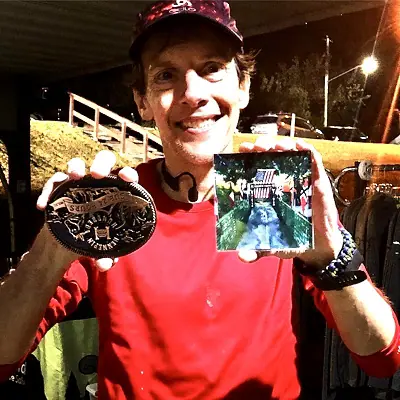[Editor’s Note: This month’s “Community Voices” column is authored by Henry Howard. Henry is a runner, coach, and founder of the Run Spirited website, which shares great storytelling from a wide variety of running disciplines. In this column each month, we showcase the work of a writer, visual artist, or other creative type from within our global trail running and ultrarunning community. Our goal is to tell stories about our sport and wild lands in creative and innovative ways. Submit your work for consideration!]
Behind every successful 100-mile victory, fastest known time (FKT), or other feat in endurance running, the athlete has a support system which may include their spouse or partner, family, and friends.
The work of those supporters often goes unheralded. Though their runners are grateful, they may not show it during their darkest moments. Support teams navigate logistical challenges in remote places without wifi or cell reception. They offer up an endless buffet of calories: salty snacks, sweet treats, and other pick-me-ups for their runners. In addition, crew members often play the role of coach, therapist, cheerleader, and nurse, sometimes all of the above during the same aid-station stop.
And at the end of the day – win, lose, or DNF — crews lift up their runner, shunning the spotlight from their efforts over hours, days, or even longer.
Tom Aussem is among the unheralded crew members who supports his husband, Coree Woltering, during his epic journeys. For the couple, that support is an extension of their lives.
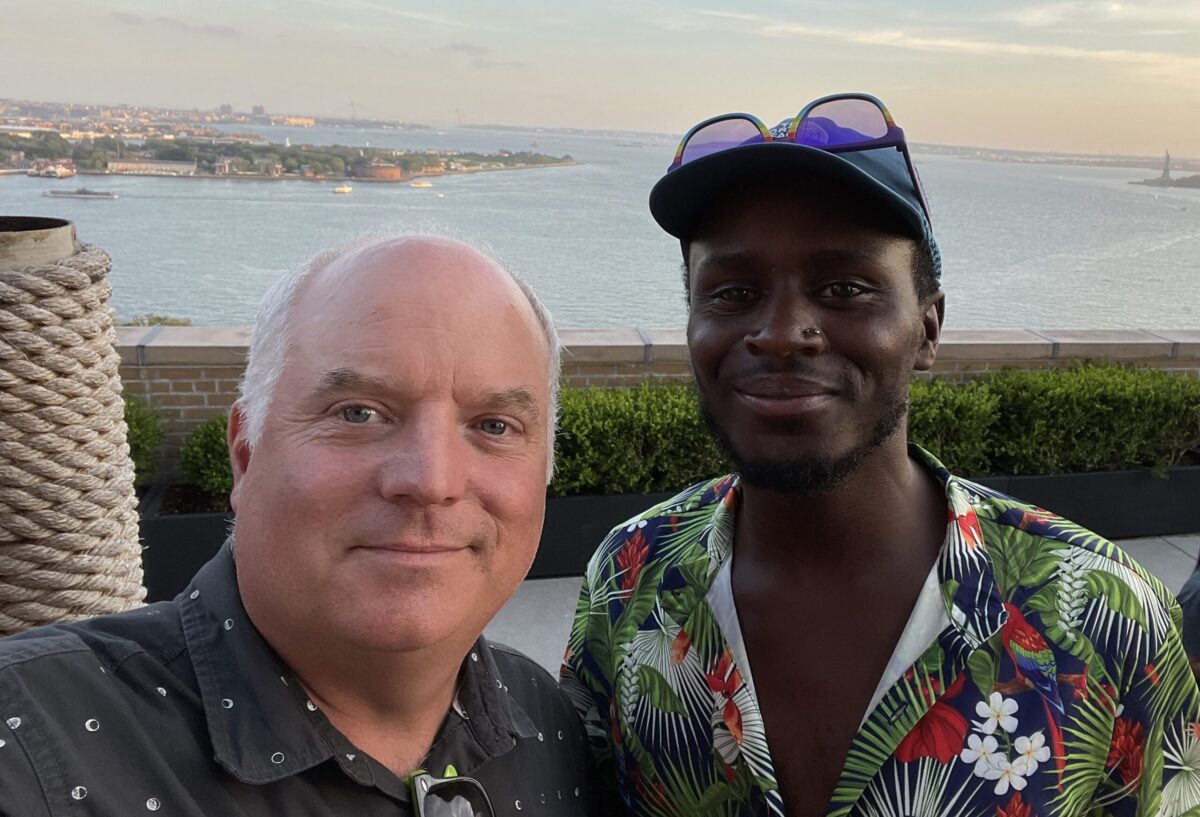
Tom Aussem (left) and Coree Woltering. Photo: Tom Aussem
A Lesson Learned
They both admit, that as a spouse, Tom really doesn’t have a choice on whether or not to crew Coree.
“If I get on a start line, I’m going to do everything in my power to finish that race,” Coree says. “Tom understands I will absolutely put myself through whatever it takes to get to the finish. So, because of that, he knows not to worry. As someone who’s been a sky diver for years, he’s also seen people get injured. Luckily in trail running, it’s more like you’re just coming in kind of bloody, and not like in skydiving where you might break a femur.”
In preparation for Coree’s FKT attempt on the Ice Age Trail in 2020, the couple spent time in Wisconsin enjoying their passions. Coree explored the trails; Tom went sky diving.
The couple celebrated their fifth wedding anniversary on July 23 of this year. Tom began crewing Coree seven years ago and has learned a lot since that first experience.
Tom was patiently waiting for Coree as he was running the 2016 Tunnel Hill 50 Mile. When he saw his runner approach, Tom held out bottles for a quick replacement, and Coree ran right by.
“I had put my hoodie up, which I wasn’t wearing when we started the race or at any other aid station,” Tom explains. “He didn’t recognize me. I just assumed he didn’t want it.”
The error cost Coree, as he was without nutrition for a long stretch. But it was a lesson learned.
“We learned from that,” Tom says. “If he runs right by me today, I’m running after him. I’ll go right on the trail [asking him], ‘Hey, hi, do you want this or not?’”
“You Run. I’ll Do Everything Else.”
Their relationship survived the botched handoff attempt. Tom now regularly crews Coree, including his FKT on the Ice Age Trail. Coree fought off an ankle injury, ticks, and exhaustion to set the 1,147-mile FKT with a time of 21 days, 13 hours, and 35 minutes.
“The success he has found in the ultrarunning world is his and his alone,” Tom emphasizes.“There’s a fire in his belly that pushes him to succeed. The Ice Age Trail FKT was a unique challenge, being the longest thing he’d ever attempted.”
Coree’s job is to run. Tom handles the logistics.
“He’s organized,” Coree says. “That is the one thing that’s super important as a crew person, just minimizing the minor stressful things that the runner could have to deal with. So, by having X, Y, and Z ready, that makes life so much easier.”
As a licensed pilot and sky diver, Tom is perfectly fitted for his role.
“Coree doesn’t need to be lifted up,” he says. “My job is to be on all the time. I am constantly just being the crew guy and planning the next step. I have to have all of the contingencies covered, which sometimes means finding a brewery, as well as finding the next point where the trail crosses the road where I can meet [Coree].”
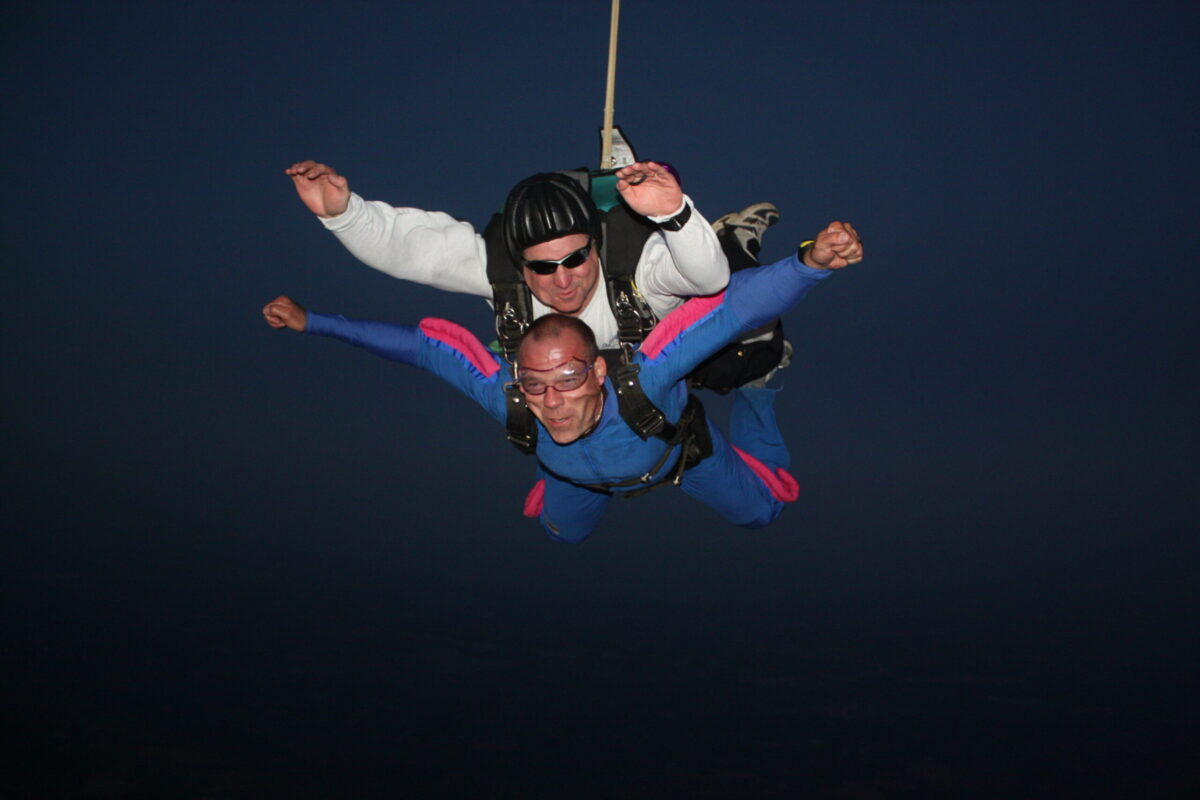
Tom Aussem skydiving (above). Photo: Tom Aussem
Tom the Crew Captain
It can be challenging for significant others to see athletes at really low points. Tom separates himself from Tom the Husband, and focuses on being Tom the Crew Captain.
During the Ice Age Trail FKT, a weather system from a hurricane made its way to Wisconsin, bringing torrential rain and strong wind.
“He was limping down the road,” Tom recalls. “That’s where the husband came out in me, and I teared up and I thought, I want to just go grab him. I want to hug him. Or I’ll pull up into the crew vehicle and say, ‘We’re going to go to a nice hotel and we’re going to find a bar and get some good food and we’re done.’ But that’s not my decision to make, that’s his decision. I kept thinking about all the contingencies.”
Coree focused on the goal. Tom helped his runner forward. Soon enough, Coree neared the eastern terminus of the Ice Age Trail at Potawatomi State Park in Sturgeon Bay, the finish line for his FKT effort. Tom watched closely and drove the crew car.
No words were exchanged but Coree’s eyes indicated that he knew he had the FKT in hand. During the three-week-long FKT attempt, Coree rarely spoke to Tom. It was all business until he reached the finish.
“There’s something I say to Coree before every race,” Tom says. “It’s, ‘Have fun. I don’t care if you win. Who cares if you win? If you’re not having fun, then there’s no point in being out there.’ So I said to him when he got there, ‘Did you have fun?’ And he said, ‘Heck yeah.’ It was awesome. I’m crying like a baby now, telling this story.”
It was raining and around 50 degrees Fahrenheit at the finish. Tom handed Coree a beer. Coree remembers, “He knows me well. It was kind of wild when I’m standing next to my husband, at the finish, after we did this thing for three weeks. The rest of my crew was also there, which was really awesome.”
Not every couple has personalities that mesh well under difficult circumstances.
“I would recommend to the crew person, just remember that when your runner gets tired, if they don’t say please or thank you,” Coree advises. “They’re just tired and they’re not really thinking about please or thank you.”
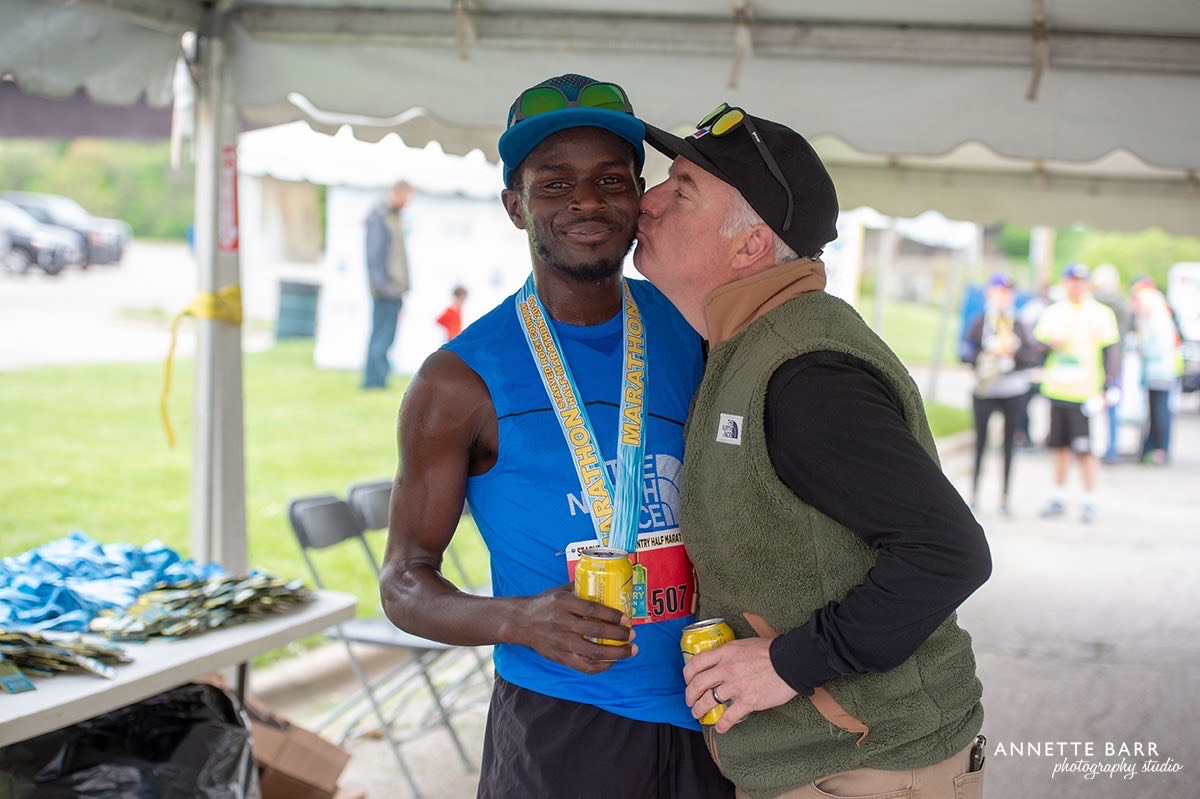
Coree (left) and Tom after the Starved Rock Country Marathon in the couple’s hometown of Ottowa, Illinois. Photo: Annette Barr Photography Studio
On a Mission
Coree and Tom’s life of adventure has created a strong bond, strengthened by Tom’s dedication to serving as crew chief.
“Our married life would be an entirely different animal had it not been for the path that we’ve gone down,” he says. “Most married people go and do their job. They have kids and they come back together, and take care of their kids, take care of the yard, and they do laundry. That’s not us. We look for challenges. We’re on a mission. We’re not afraid of anything.”
Going forward, the couple says they will stop at nothing to do everything. And they wouldn’t want it any other way.
“There’s nothing that Coree Woltering and Tom Aussem can’t do,” Tom says. “Throw anything at us, we will find a way to make it work. There’s so much more to learn, but we’ll figure it out. Between him, with his fire in his belly, his ability and determination, and my willingness and our flexibility, we can do anything.”
Call for Comments
- Have you crewed a spouse or partner during a trail race or ultramarathon, and how did it go?
- How do you think people who are in a relationship together can support each other in specific ways compared to friends?
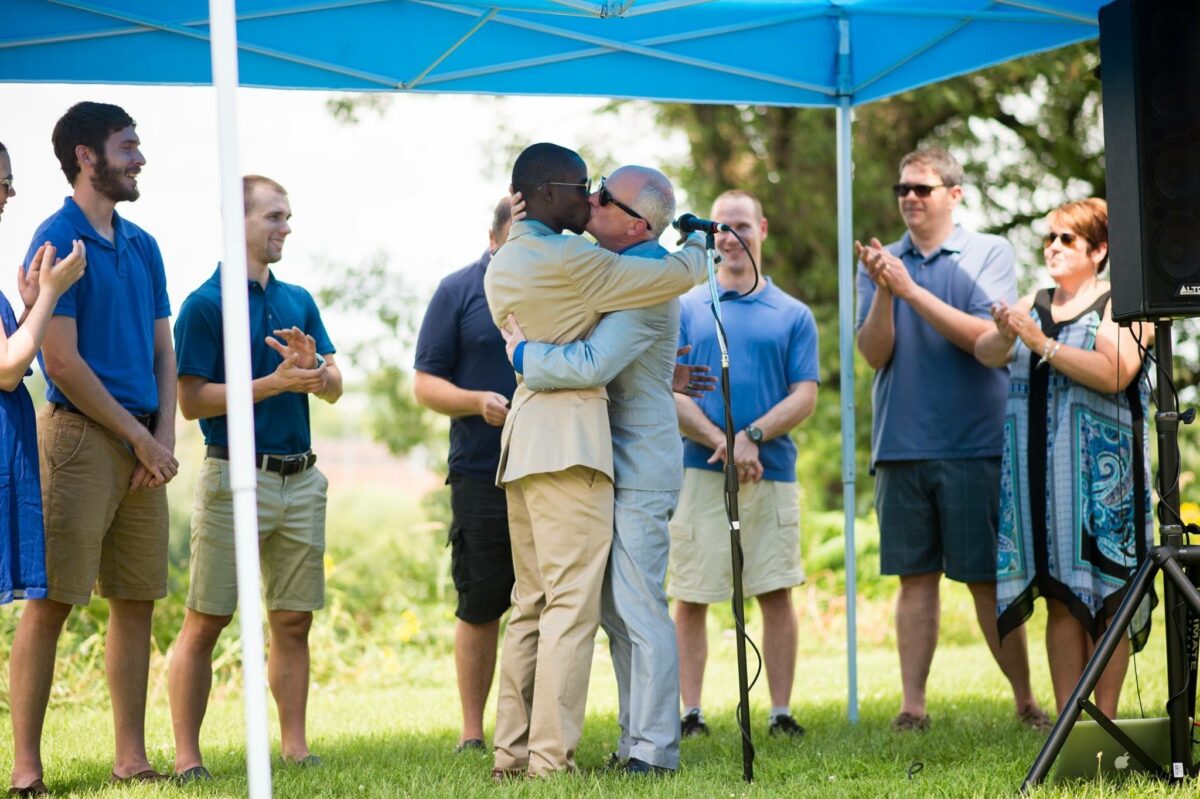
Coree and Tom on their wedding day. Photo: Annette Barr Photography Studio
